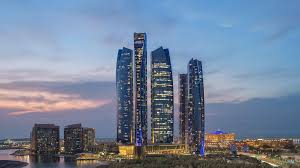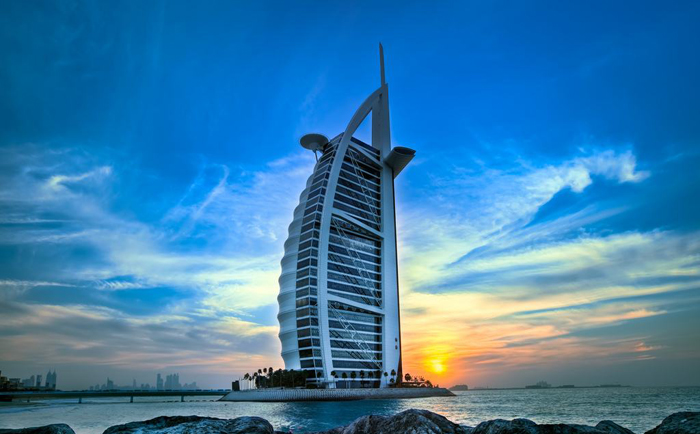In Dubai, luxury property transactions averaged $743,000 in Q1 2025.
Dubai’s real estate market is experiencing a surge in interest from Chinese and Hong Kong investors, drawn by the emirate’s strong economic fundamentals, investor-friendly policies, and high-yield opportunities.

According to Juwai IQI, Chinese buyer inquiries for UAE properties rose by 28 per cent in the first quarter of 2025 compared to the previous year, reflecting a growing appetite for Dubai’s residential and commercial assets. This influx is part of a broader trend, with foreign investors, including those from China, the US, the UK, France, Kazakhstan, and Russia, purchasing over $2 billion in Abu Dhabi real estate in 2024, a 125 per cent increase from 2023.
In Dubai, Chinese investors accounted for approximately 8.0 per cent of foreign real estate investment in 2024, a figure expected to grow in 2025, according to Kashif Ansari, co-founder and group CEO of Juwai IQI. The city’s residential market saw rents and sales prices climb by 16 per cent and 18 per cent, respectively, in 2024, driven by expatriate demand and government initiatives like long-term visas and relaxed ownership laws. Cushman & Wakefield Core projects office rents to rise by 10 to 12 per cent in 2025, further signaling Dubai’s appeal as a global investment hub.

A notable transaction highlighting this trend is Hong Kong-based Gaw Capital’s acquisition of a residential building at Mamsha Gardens on Saadiyat Island, Abu Dhabi, for Dh586 million from Aldar Properties, marking its first UAE investment. Aldar, Abu Dhabi’s largest developer, reported that 87 per cent of its first-quarter 2025 sales were to international buyers, with Chinese and Hong Kong investors contributing Dh1.3 billion in Q1 alone, following Dh1.5 billion in 2024—a 30-fold increase from 2022.
Talal Al Dhiyebi, Aldar’s group CEO, noted that the transaction underscored the strength of Abu Dhabi’s maturing real estate market and its appeal to global investors, driven by robust economic fundamentals and high-quality assets.
Christina Gaw, managing principal at Gaw Capital, which manages $34.4 billion in assets, described the Mamsha Gardens deal as a “landmark investment” reflecting confidence in the Middle East’s growth potential.
Humbert Pang, Gaw Capital’s head of China, added, “The UAE’s economic diversification, new residency permits, and rising expatriate demand have significantly boosted property market sentiment.” This sentiment is echoed by Black Spade Capital, the family office of casino billionaire Lawrence Ho, which recently invested in IFCX, a Hong Kong-based brokerage targeting Middle Eastern real estate.
David Abood, head of Capital Markets at Cushman & Wakefield Core, noted a marked uptick in Asian investor activity, particularly from China and Hong Kong, targeting institutional-grade assets like prime offices, logistics, and high-end residential properties. “These segments offer immediate income potential and benefit from Dubai’s regulatory transparency and rising demand,” Abood said, citing a recent Dh2.5 billion office transaction as evidence of market strength.
In Dubai, luxury property transactions averaged $743,000 in Q1 2025, with foreign buyers, including Chinese investors, paying a premium at $1.12 million on average.
Dubai’s appeal is further enhanced by its strategic initiatives, such as the Dubai Real Estate Strategy 2033, which aims to increase transaction values by 70 per cent and boost home ownership to 33 per cent by 2033. The city’s population, projected to reach 4.0 million by 2026, continues to drive demand, with off-plan sales hitting $34.3 billion in the first half of 2024. Projects like Emaar South and Jumeirah Lakes Towers are emerging as investment hotspots, fueled by infrastructure developments like Al Maktoum Airport.
However, analysts caution that an expected increase in residential supply—182,000 units by 2026—could stabilise or slightly depress prices if demand softens. Geopolitical uncertainties in the region also pose risks, though Dubai’s status as a safe haven has historically mitigated such concerns. For now, Chinese and Hong Kong investors remain undeterred, drawn by Dubai’s low-tax regime, safety, and connectivity, as noted by Fadi Moussalli of JLL.
As global interest intensifies, with recent visits by leaders like US President Donald Trump and Hong Kong Chief Executive John Lee signalling the region’s strategic importance, Dubai’s real estate market is poised for sustained growth. With Asian capital, particularly from China and Hong Kong, playing a pivotal role, Dubai is expected to sustain its position as a premier destination for global real estate investment in 2025.